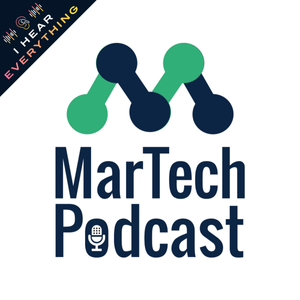
#101: Why Should You Talk About Incident Response? | Part 4
04/24/25 • 24 min
Welcome to the fourth episode of our Energy Talks miniseries titled, Why Should You Talk About Incident Response? Join OMICRON cybersecurity consultant Simon Rommer as he explores the different process steps involved in cybersecurity incident response alongside other experts from the power industry.
In this episode, Simon speaks with Stephan Mikiss, who is Head of Managed Security Services at SEC Consult and a SANS-certified forensics analyst based in Vienna, Austria. Simon and Stephan discuss the steps of containment, eradication and recovery in the incident response process and highlight the need for collaboration between IT and OT teams to effectively manage cybersecurity incidents.
Simon and Stephan also explore the iterative nature of incident response, the unique challenges posed by OT environments, and the necessity of understanding both the business model and the attacker's motives to make informed decisions during a crisis.
If you haven’t already listened to Part 1, Part 2 and Part 3 of this miniseries, be sure to check them out:
#85: Why Should You Talk About Incident Response? | Part 1 - OMICRON
#95: Why Should You Talk About Incident Response? | Part 2 - OMICRON
#97: Why Should You Talk About Incident Response? | Part 3 - OMICRON
Learn more about OMICRON’s approach to advanced cybersecurity in OT environments.
We welcome your questions and feedback. Simply send us an email to [email protected]. Please join us to listen to the next episode of Energy Talks.
Welcome to the fourth episode of our Energy Talks miniseries titled, Why Should You Talk About Incident Response? Join OMICRON cybersecurity consultant Simon Rommer as he explores the different process steps involved in cybersecurity incident response alongside other experts from the power industry.
In this episode, Simon speaks with Stephan Mikiss, who is Head of Managed Security Services at SEC Consult and a SANS-certified forensics analyst based in Vienna, Austria. Simon and Stephan discuss the steps of containment, eradication and recovery in the incident response process and highlight the need for collaboration between IT and OT teams to effectively manage cybersecurity incidents.
Simon and Stephan also explore the iterative nature of incident response, the unique challenges posed by OT environments, and the necessity of understanding both the business model and the attacker's motives to make informed decisions during a crisis.
If you haven’t already listened to Part 1, Part 2 and Part 3 of this miniseries, be sure to check them out:
#85: Why Should You Talk About Incident Response? | Part 1 - OMICRON
#95: Why Should You Talk About Incident Response? | Part 2 - OMICRON
#97: Why Should You Talk About Incident Response? | Part 3 - OMICRON
Learn more about OMICRON’s approach to advanced cybersecurity in OT environments.
We welcome your questions and feedback. Simply send us an email to [email protected]. Please join us to listen to the next episode of Energy Talks.
Previous Episode

#100: Celebrating 100 Episodes and Four Years of Knowledge Sharing
Thank you for listening to Energy Talks for tips about maintaining reliable power systems.
Our goal with Energy Talks is to share the knowledge of our guest experts with you, to provide you with insights about current and important topics, and to inspire you through the experience of others to solve daily challenges. Of course, essential for us is to help listeners like you keep energy systems running reliably.
Recent headlines have reported that blackouts caused havoc in major infrastructure hubs, like London’s Heathrow Airport. These incidents clearly demonstrate how being prepared is key to ensuring a reliable power system.
In this 100th episode of Energy Talks, we feature parts of our Episode 58 to recall what OMICRON blackout preparedness experts Friedrich Almer and Daniel Wiesner describe as essential aspects of preventing and properly dealing with blackouts in power grids.
Friedrich and Daniel highlight various aspects to consider, including the growing complexities of power systems and managing the use of renewable energy, the importance of regular reliability testing and monitoring of substation equipment, and the growing necessity of cybersecurity to prevent malicious power network intrusion.
Over the past four years, we have spoken with experts in the fields of power system testing, data management, the digital transformation of the power grid, cybersecurity and mastering the challenges of a rapidly changing power system.
A BIG thank you to our guests and listeners – We would like to take this opportunity to thank each of our over 150 expert guests who have shared their experiences and insights on these various topics related to power system reliability. We also thank our listeners like you who continue to join Energy Talks to get informed about the latest power system developments and trends and inspired to solve daily challenges in the field.
We would really like to know what you think about Energy Talks and which topics you would like to hear more about. To do this, simply send us an email to [email protected] and be sure to give us a star review on Spotify or Apple Podcast. Thanks for your feedback!
Next Episode

#102: Using Instrument Transformers for Reliable Power Quality Testing
Discover why accurate wideband measurements are essential for checking power quality.
Poor power quality can lead to equipment malfunction and energy losses. Accurate power quality measurements are vital for checking grid stability. Instrument transformers play a crucial role in ensuring this measurement accuracy.
These are the points discussed in this episode of Energy Talks with OMICRON instrument transformer testing experts Felix Feustel and Thomas Bischof. They describe how the accuracy of power quality measurements is becoming more important in evolving modern power grids to ensure a reliable power supply.
Specifically, Felix and Thomas describe the role of instrument transformers in ensuring accurate wideband measurements for determining power quality, and how they developed and field-tested an innovative measurement solution for it, called FRANEO 800 IT PQlyzer.
Felix and Thomas also highlight the importance of adhering to international standards in developing such a solution and the positive feedback they have received from the users who requested it.
Find out more about the OMICRON solution for checking the accuracy of wideband measurements for power quality testing applications.
Discover EIC1 / FRANEO 800 IT PQlyzer
We welcome your questions and feedback. Simply send us an email to [email protected]. Please join us to listen to the next episode of Energy Talks.
If you like this episode you’ll love
Episode Comments
Generate a badge
Get a badge for your website that links back to this episode
<a href="https://goodpods.com/podcasts/energy-talks-456318/101-why-should-you-talk-about-incident-response-part-4-90004427"> <img src="https://storage.googleapis.com/goodpods-images-bucket/badges/generic-badge-1.svg" alt="listen to #101: why should you talk about incident response? | part 4 on goodpods" style="width: 225px" /> </a>
Copy




